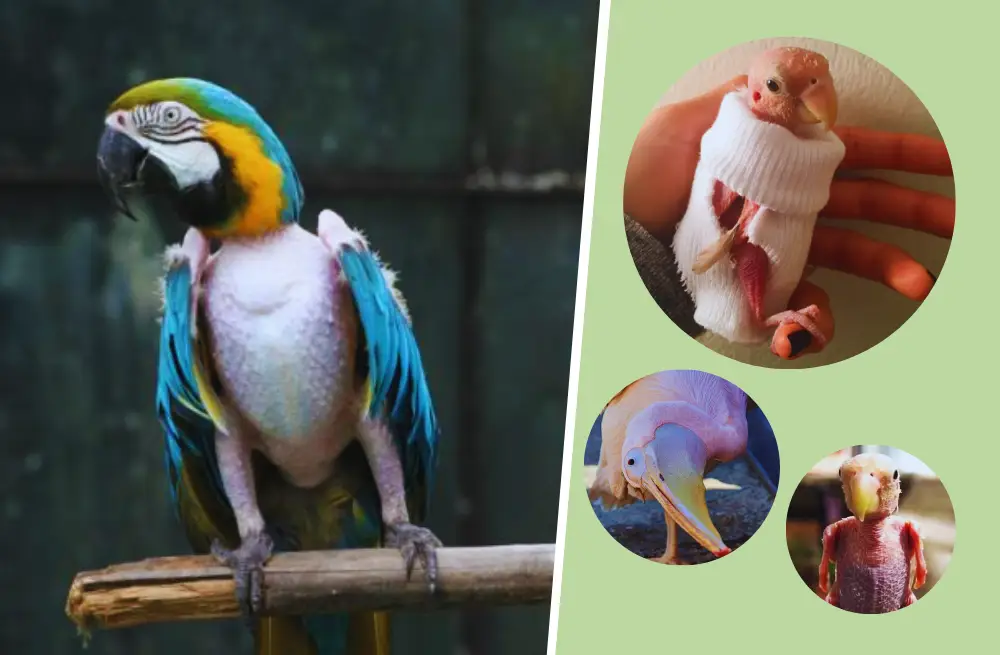When it comes to caring for your Bearded Dragon, ensuring a well-balanced and nutritious diet is crucial. As omnivores, these reptiles require a mix of plant-based and meat-based foods to thrive. However, not all foods are suitable for your scaly friend.
In this article, we will explore the foods that should be avoided when feeding Bearded Dragons and explain why.
Maintaining the right balance of nutrients is essential for the overall health of your Bearded Dragon. Specifically, a proper 2:1 Calcium to Phosphorus ratio is necessary to support their well-being. Foods high in phosphorus can disrupt this balance and pose a risk to your pet’s health.
Additionally, certain foods rich in oxalates can hinder calcium absorption, further impacting their nutritional needs. Moreover, some foods contain toxins, harmful microorganisms, or interfere with the absorption of vital vitamins and minerals.
Join us as we delve into the list of foods that should never be included in your Bearded Dragon’s diet, as well as those that can be offered as occasional treats. By understanding what not to feed your reptile companion, you can ensure their dietary needs are met and promote their long-term well-being.
What foods are bad for bearded dragons?
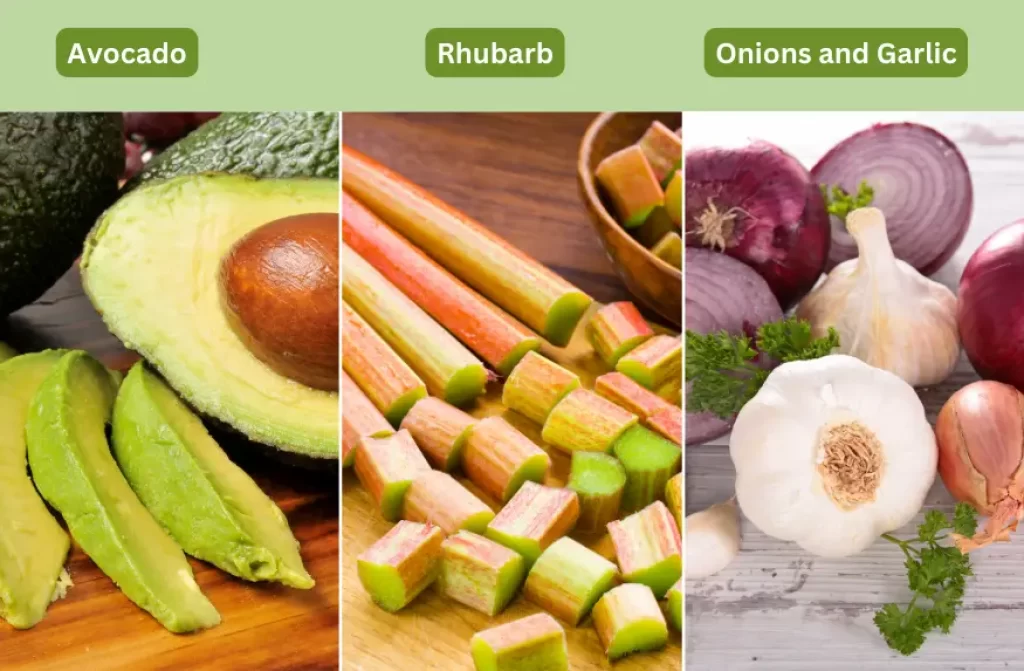
Avocado
Avocados are known for their creamy texture and nutritious qualities, but when it comes to feeding bearded dragons, they should be avoided. Avocados contain a toxin called persin, which can have detrimental effects on the health of these reptiles.
Persin primarily affects the respiratory system of bearded dragons, leading to respiratory distress and difficulty in breathing.
This toxin can also cause fluid accumulation around the heart, resulting in cardiac problems and potentially leading to heart failure. In severe cases, ingestion of avocados can even be fatal for bearded dragons. Therefore, it is crucial to keep avocados away from your pet’s diet to ensure their well-being and prevent any potential health complications.
Rhubarb
Rhubarb, a plant known for its tart flavor and vibrant red stalks, is another food item that should be avoided when it comes to feeding bearded dragons. While the stalks of rhubarb may seem appealing, it’s important to remember that the leaves of this plant contain high levels of oxalates.
Oxalates are compounds that can interfere with calcium absorption in bearded dragons, disrupting the delicate calcium-to-phosphorus ratio necessary for their bone health.
When bearded dragons consume foods high in oxalates, such as rhubarb leaves, it can lead to a condition known as metabolic bone disease.
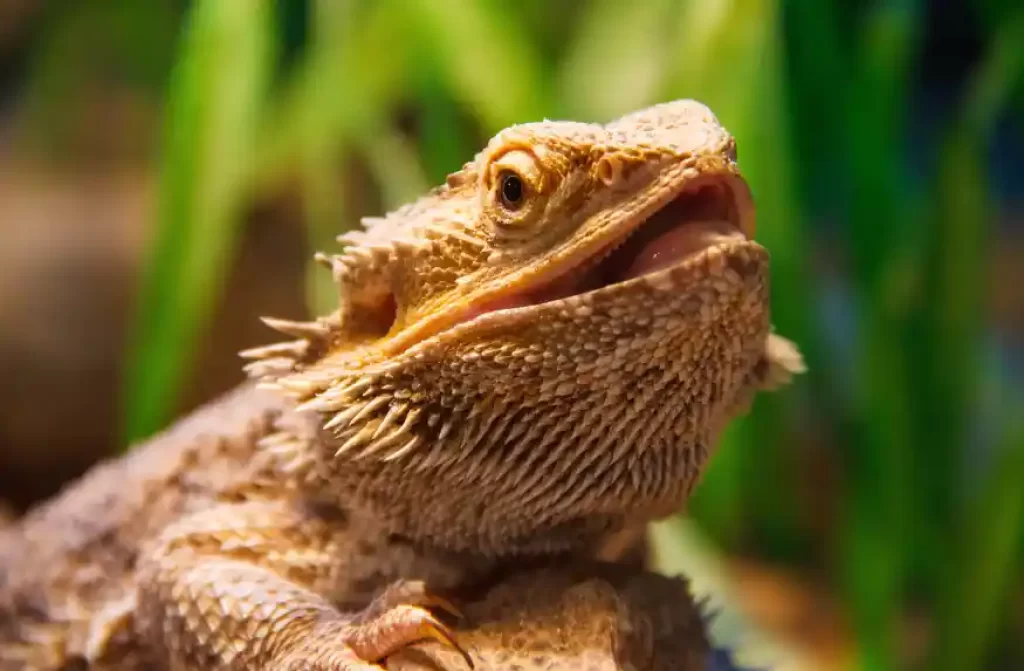
This disease is characterized by weakened bones, skeletal deformities, and an increased risk of fractures. Since calcium is crucial for the proper growth and development of bearded dragons, it’s essential to avoid foods that hinder its absorption.
To ensure the well-being of your bearded dragon, it’s best to steer clear of feeding them rhubarb leaves. Stick to safer and more appropriate food options that provide the necessary nutrients without the risk of interfering with calcium absorption and causing potential health problems.
Mushrooms
Mushrooms should be avoided when feeding bearded dragons due to their high phosphorus and acidic content. These factors can disrupt the calcium-to-phosphorus ratio and potentially lead to metabolic bone disease. It is challenging to determine which mushrooms are safe, so it’s best to steer clear of them altogether.
Spinach
Spinach, while commonly viewed as a nutritious vegetable, should be avoided when feeding bearded dragons. It contains high levels of oxalates that have the ability to bind to calcium, forming crystals in the dragon’s kidneys.
Over time, this can result in kidney damage and negatively impact their health. It’s important to prioritize other leafy greens with lower oxalate content to provide essential nutrients without the risk of kidney complications.
Iceberg Lettuce
Iceberg lettuce should be avoided when feeding bearded dragons due to its lack of nutritional value and high water content. While it may seem like a harmless option, it can actually have adverse effects on their health.
The high water content can lead to diarrhea and dehydration in bearded dragons, compromising their well-being. It is best to choose more nutrient-dense leafy greens and vegetables to ensure a balanced and healthy diet for your bearded dragon.
Fireflies/Lightning Bugs
Fireflies, also known as lightning bugs, should never be fed to bearded dragons. These insects contain a toxic substance called lucibufagins, which can be highly dangerous and even lethal to bearded dragons if ingested.
While their bioluminescent glow may be captivating, it is important to remember that these insects are not suitable prey for your pet. Avoid feeding your bearded dragon any type of insect that emits light, as it can pose a serious risk to their health. Stick to feeding them safe and appropriate insects that are known to be part of their natural diet.
Onions and Garlic
Onions and garlic should be strictly avoided in the diet of bearded dragons. These vegetables contain compounds, such as thiosulphates, that can cause red blood cell damage and lead to anemia in these reptiles.
The consumption of onions and garlic can disrupt the normal functioning of the bearded dragon’s blood cells, potentially leading to serious health complications. It is important to note that even small amounts of onions or garlic can be harmful.
Therefore, it is best to exclude these ingredients completely from your bearded dragon’s diet to ensure their well-being and prevent any adverse effects. Stick to feeding them a balanced diet consisting of safe and appropriate foods that meet their nutritional requirements.
Citrus Fruits
Feeding citrus fruits such as oranges and lemons to bearded dragons is not recommended. These fruits are acidic in nature, which can lead to digestive issues and mouth ulcers in these reptiles. The high acidity of citrus fruits can disrupt the delicate balance of the bearded dragon’s digestive system, potentially causing discomfort, inflammation, and even damage to the oral tissues
Insects Caught in the Wild
Insects caught from the wild can carry parasites, pesticides, or other toxins that can be harmful to bearded dragons. Stick to commercially bred insects as a safer option.
Leek
Leeks, being part of the onion family along with chives, are not recommended for bearded dragons. It is believed that consuming excessive amounts of leeks can potentially lead to organ failure, although the precise quantity that poses a risk is uncertain.
Therefore, it is advisable to include leeks in the list of foods that should not be fed to bearded dragons.
Eggplants
Eggplants, whether raw or cooked, are highly acidic and should be avoided when it comes to feeding bearded dragons. The high acidity levels can cause digestive discomfort and upset their delicate pH balance.
While eggplants may be a common ingredient in human meals, they are not suitable for the dietary needs of bearded dragons. It is always better to err on the side of caution and refrain from including eggplants in their diet.
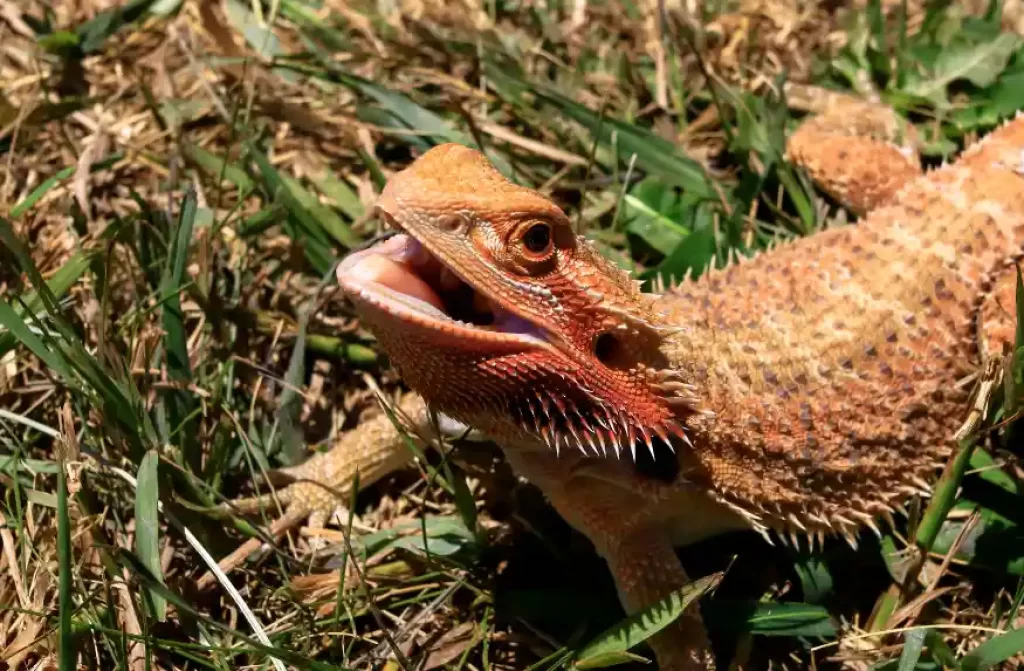
Canned or Processed Foods
Processed foods designed for humans, such as canned vegetables or baby food, often contain additives, preservatives, and high levels of sodium, which are not suitable for bearded dragons.
Seeds and Pits: Seeds and pits from fruits like apples, cherries, and peaches can be a choking hazard for bearded dragons and may contain toxins. Remove them before feeding any fruits to your dragon.
Caterpillars
Caterpillars and butterflies, despite their seemingly harmless appearance, can pose a significant threat to the health of bearded dragons. While they may not be toxic themselves, their diet consists of various plants, some of which contain toxins that can be dangerous for bearded dragons.
The concern arises because these insects consume plants throughout the day, including those with toxic compounds. When a bearded dragon consumes a caterpillar or butterfly that has fed on these toxic plants, it indirectly ingests the same toxins. This can lead to adverse effects on their health and well-being
Venomous insects
Venomous insects pose a significant threat to the health and safety of bearded dragons and should never be fed to them. Insects like wasps, scorpions, hornets, bees, centipedes, and certain spiders are equipped with venomous bites or stings that can cause injury or harm to a bearded dragon.
Introducing live venomous insects into your dragon’s tank increases the risk of them being bitten or stung, potentially resulting in pain, swelling, or even allergic reactions.
Furthermore, if a bearded dragon ingests these venomous insects, they are also consuming the toxic venom produced by these creatures. This ingestion can lead to sickness, adverse reactions, or even death. The toxic compounds present in the venom can have detrimental effects on the dragon’s internal organs and overall well-being.
Certain plants
When it comes to adding plants to your bearded dragon’s enclosure, it’s important to be aware of which plants are safe and which ones can be potentially harmful. While plants can create a natural and visually appealing habitat, certain plants may contain toxic substances that can be harmful if ingested by your bearded dragon.
To ensure the safety of your pet, we recommend referring to reliable sources for a comprehensive list of safe and unsafe plants. Sawnee’s Animal Clinic provides a helpful resource that can guide you in choosing suitable plants for your bearded dragon’s enclosure.
By consulting such a list, you can make informed decisions about the plants you introduce, avoiding any potential risks associated with toxic plants. It’s crucial to prioritize your bearded dragon’s health and well-being by providing a safe and enriching environment free from potentially harmful plant species.
Remember to thoroughly research and confirm the safety of any plant before adding it to your bearded dragon’s habitat. By being diligent and knowledgeable about the plants you choose, you can create a healthy and thriving environment for your beloved pet.
Can bearded dragons eat tomatoes?
Yes, bearded dragons can eat tomatoes, but they should be fed in moderation. Tomatoes are safe for bearded dragons to consume, but they are high in acidity and water content. Feeding excessive amounts of tomatoes can lead to digestive issues such as diarrhea.
It’s best to offer tomatoes as an occasional treat rather than a regular part of their diet. Additionally, remove the seeds before feeding tomatoes to your bearded dragon, as the seeds can be a choking hazard.
What should you feed your bearded dragon every day?
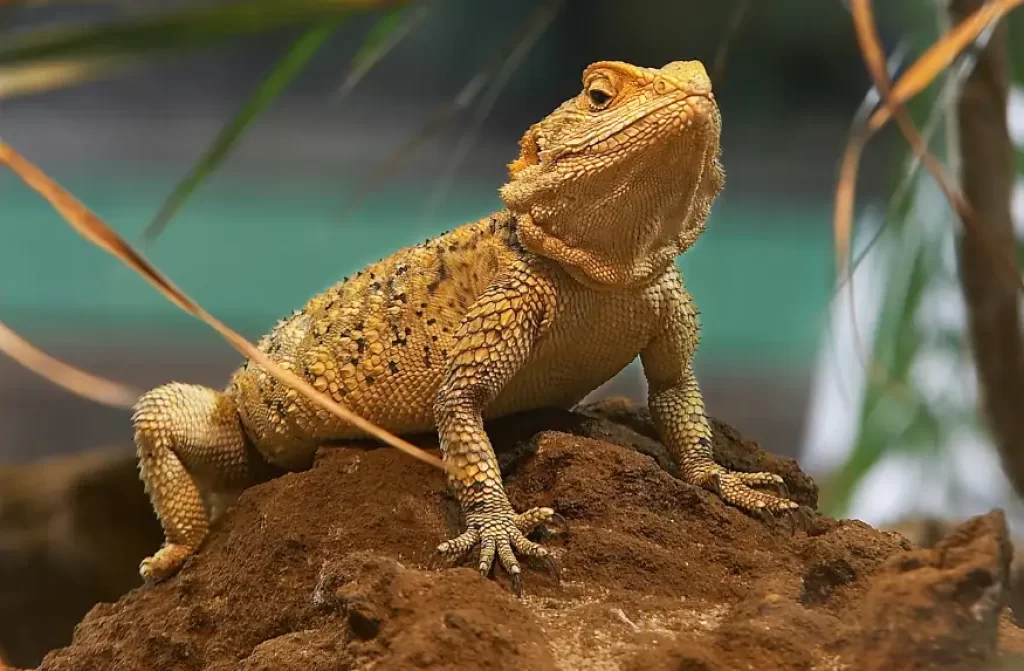
While it’s important to know what foods are suitable for your bearded dragon, it’s equally crucial to be aware of what foods should be avoided. Feeding inappropriate or harmful items to your pet can lead to health issues and discomfort. To ensure the well-being of your bearded dragon, here is a comprehensive list of foods that should never be included in their diet:
High phosphorus foods
High phosphorus foods should be given to bearded dragons in moderation due to their potential impact on the calcium-to-phosphorus ratio. Excessive phosphorus can disrupt the proper absorption and utilization of calcium, which is essential for maintaining strong bones and overall health in these reptiles.
While potatoes (both sweet and russet), corn, and bananas are considered high in phosphorus, they can still be included in your bearded dragon’s diet as long as they are offered in small quantities.
By carefully monitoring the portion size and frequency of these foods, you can help ensure that your bearded dragon receives a balanced and appropriate intake of phosphorus while maintaining the necessary calcium balance for optimal well-being.
High Goitrogen Foods for Your Bearded Dragon
Proper nutrition plays a vital role in maintaining the health and well-being of your bearded dragon. While there are many nutritious foods that you can offer your pet, it’s important to be aware of certain compounds called goitrogens. Goitrogens are substances that can interfere with the absorption of iodine, which is essential for normal thyroid gland function in bearded dragons.
It’s worth noting that foods containing goitrogens are typically nutritious and can be included in your bearded dragon’s diet. However, it’s crucial to exercise caution and control the amount you feed them. Moderation is key to ensuring that the goitrogenic content doesn’t negatively impact your pet’s thyroid health.
Some common high goitrogen foods that you should be mindful of include broccoli, cauliflower, cabbage, Brussels sprouts, bok choy, turnips, rutabaga, peaches, plums, pears, strawberries, raspberries, cherries, and apricots.
These foods can provide valuable nutrients to your bearded dragon, but it’s important to offer them in small portions and less frequently to mitigate the potential negative effects of goitrogens.
Foods High in Oxalates
High oxalate foods should be approached with caution when considering your bearded dragon’s diet. While these foods are not inherently poisonous, they contain oxalates that can hinder calcium absorption in your pet.
Calcium is crucial for maintaining strong bones and overall health in bearded dragons. Therefore, it is recommended to feed high oxalate foods sparingly to ensure optimal calcium intake.
Some examples of high oxalate foods include carrots, spinach, beets and beet greens, celery, kiwi, okra, parsley, radicchio, raspberries, yucca, chard, and star fruit.
By being mindful of the oxalate content and moderating the frequency and portion size of these foods, you can help maintain a balanced and nutritious diet for your beloved bearded dragon.
Other Suitable Foods for Your Bearded Dragon
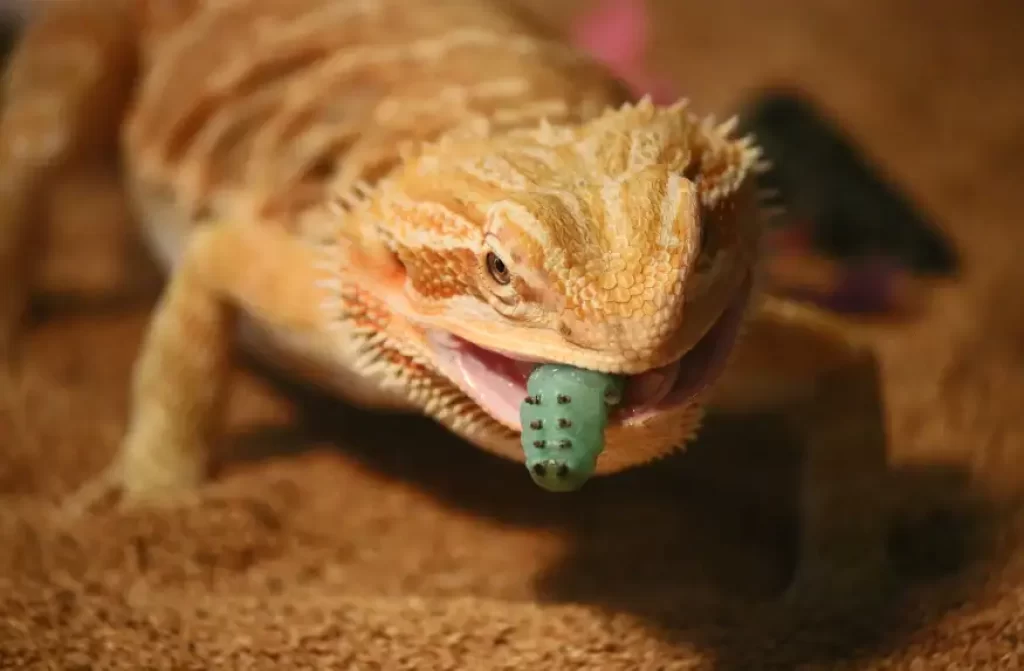
Now that you are aware of the foods to avoid, let’s focus on some nutritious options that you can safely include in your bearded dragon’s daily diet. These foods provide essential nutrients and contribute to the overall well-being of your pet:
Bell peppers
Bell peppers are an excellent and nutritious addition to your bearded dragon’s diet. These vibrant vegetables are packed with essential vitamins and minerals, including a significant amount of vitamins A and C.
Vitamin A is essential for maintaining healthy skin, vision, and immune function, while vitamin C supports their overall health and boosts their immune system.
Bell peppers come in a variety of colors, such as red, yellow, and green, offering not only nutritional benefits but also visual appeal to your pet’s meals.
To make it easier for your bearded dragon to consume, you can chop the bell peppers into small, manageable pieces. This ensures that they can enjoy the delicious taste and reap the nutritional rewards without any difficulty.
Including bell peppers in your bearded dragon’s diet adds variety and contributes to their overall well-being. Just remember to offer them in moderation as part of a balanced and diverse meal plan tailored to their specific dietary needs.
Leafy Greens
Leafy greens are an essential component of a healthy and balanced diet for your bearded dragon. These nutrient-packed greens provide a range of vitamins and minerals that contribute to their overall well-being. When it comes to leafy greens, diversity is key.
Consider offering a variety of leafy greens, including collard greens, mustard greens, dandelion greens, and kale. These greens are not only tasty for your pet but also rich in essential nutrients. One notable nutrient is calcium, which plays a vital role in maintaining strong bones and preventing metabolic bone disease in bearded dragons.
By incorporating a mix of these leafy greens into your pet’s diet, you provide them with a wide array of vitamins, minerals, and antioxidants that support their growth and health. Remember to wash the greens thoroughly and chop them into appropriate-sized pieces to make it easier for your bearded dragon to consume.
Vegetables
Add variety to your bearded dragon’s diet with a selection of vegetables, including bell peppers, squash, zucchini, cucumber, and snap peas. These vegetables are rich in essential vitamins and minerals, providing a nutritious boost to your pet’s overall health. Introducing different vegetables helps ensure a well-rounded and diverse diet for your bearded dragon.
Fruits
Diversify your bearded dragon’s diet with occasional fruit treats. Offer small portions of berries (blueberries, strawberries, raspberries), melons (watermelon, cantaloupe), and papaya.
These fruits provide natural sugars and additional nutrients to complement their regular diet. Remember to offer fruits in moderation to maintain a balanced and healthy feeding routine.
FAQ
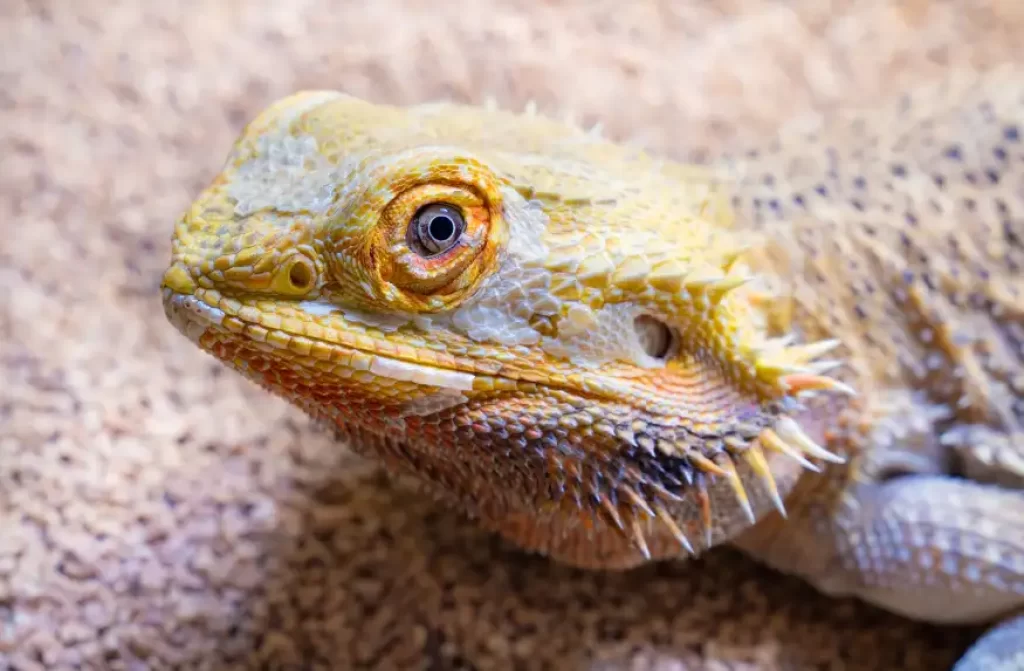
Can bearded dragons have cherry tomatoes
Yes, bearded dragons can eat cherry tomatoes. Cherry tomatoes are a smaller variety of tomatoes and can be offered to your bearded dragon as an occasional treat. Like regular tomatoes, cherry tomatoes should be fed in moderation due to their high acidity and water content.
It’s important to remove the seeds before feeding them to your bearded dragon, as the seeds can pose a choking hazard. Remember to always offer a balanced diet that includes a variety of vegetables and insects to ensure the nutritional needs of your bearded dragon are met.
Can bearded dragons have red cherries?
Yes, bearded dragons can safely consume red cherries as an occasional treat. However, it’s important to remove the pit and feed only small amounts due to the fruit’s high sugar content. Moderation is key when offering cherries to your bearded dragon.
Can bearded dragons eat mango?
Yes, bearded dragons can eat mango in moderation. Mangoes are a good source of vitamins and minerals, including vitamin C and vitamin A. However, due to their high sugar content, mangoes should be offered as an occasional treat rather than a staple part of their diet. It’s important to remove the skin and pit, and serve small, bite-sized pieces of mango to your bearded dragon.
Can bearded dragons eat apples?
Yes, bearded dragons can eat apples. Apples are safe for bearded dragons to consume and can provide them with some beneficial nutrients. However, it’s important to note that apples should be fed in moderation due to their high sugar content.
Remove the seeds and core, and offer small, chopped pieces of apple as an occasional treat. Variety is key in a bearded dragon’s diet, so it’s always best to offer a diverse range of fruits and vegetables.
Can Beardies eat pineapple?
While pineapple is not toxic to bearded dragons, it is not recommended as a regular part of their diet. Pineapple contains high levels of natural sugars and acidity, which can be difficult for bearded dragons to digest. It is best to avoid feeding pineapple to your bearded dragon on a regular basis.
If you want to offer a variety of fruits, it’s better to choose options like berries or melons that are lower in sugar and acidity. Always remember to feed fruits in moderation as occasional treats.
Conclusion
Providing a nutritious and balanced diet is crucial for the health and well-being of your bearded dragon. While this guide has covered a wide range of suitable foods, it’s important to remember that there are even more options available. The key is to offer a diverse selection of vegetables, greens, fruits, insects, flowers, and supplements to ensure your bearded dragon receives the necessary nutrients.
However, it’s essential to exercise caution when introducing new foods and to research their suitability for your pet. Additionally, be mindful of the source of insects to avoid potential exposure to harmful substances.
By staying informed and offering a varied diet, you can provide the best nutrition for your bearded dragon and contribute to their overall health and happiness. Remember to consult with a reptile veterinarian for personalized guidance on your bearded dragon’s dietary needs.




